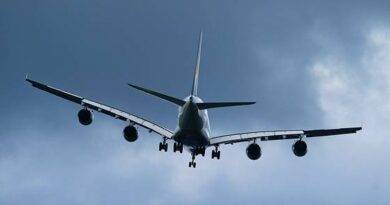Retroactive Interference and Proactive Interference in Aviation: An In-Depth Analysis
In cognitive psychology, understanding how memory interference affects learning and recall is crucial, especially in high-stakes professions like aviation. Retroactive interference and proactive interference are two primary forms of memory interference that have significant implications for aviation safety, training efficacy, and operational performance. In this article, we examine these phenomena in detail, covering their cognitive mechanisms, research evidence, and impact on aviation training and safety.
1. Memory Interference: Defining Retroactive and Proactive Interference
Interference theory in cognitive psychology explains that memory can be disrupted when new and old information compete during encoding or recall. Specifically:
- Retroactive Interference: Occurs when newly learned information disrupts the recall of previously learned information. In aviation, this often manifests when recent updates or changes override a pilot’s recall of earlier procedures.
- Proactive Interference: Arises when older information interferes with the learning or recall of new information. In aviation contexts, this may cause pilots to default to outdated procedures, especially when under stress.
Understanding these forms of interference is crucial in aviation, where memory accuracy and rapid recall can directly impact safety. Studies have shown that the degree of interference is often proportional to the similarity between old and new information, with greater similarity resulting in higher interference.
2. Retroactive Interference: Mechanisms and Evidence in Aviation
Mechanisms of Retroactive Interference
Retroactive interference occurs because new learning can “overwrite” or obscure previously stored information, affecting recall accuracy. In aviation, where pilots frequently update knowledge on new systems or procedures, this can lead to difficulty recalling older but still relevant information.
Evidence of Retroactive Interference in Aviation
- Avionics and Software Updates: Aviation relies on continually updated systems. When pilots train on new avionics or software updates in their aircraft, their recall of prior versions often diminishes. This phenomenon has been documented in research indicating that pilots show a temporary decrease in recall of prior systems following training on an updated system.
- Multi-Aircraft Qualifications: Pilots who are qualified to fly multiple aircraft types are especially susceptible to retroactive interference. For instance, a pilot trained on an Airbus A320 may struggle to recall certain procedures from a previously learned Boeing 737 due to interference from the more recent Airbus-specific procedures. Retroactive interference is particularly prominent when procedural overlap exists, leading to confusion and potential safety risks.
Retroactive interference can be especially problematic in emergency scenarios where pilots may need to recall older procedures quickly. Research confirms that retroactive interference increases as new systems or procedures more closely resemble previous ones, heightening the chance of retrieval errors.
3. Proactive Interference: Mechanisms and Evidence in Aviation
Mechanisms of Proactive Interference
Proactive interference happens when older, well-established knowledge obstructs the learning or recall of newer information. This effect is particularly relevant in aviation, where pilots frequently undergo procedural updates and transitions across aircraft.
Pre-existing habits and mental models in aviation can resist modification, especially when pilots are under time constraints or stress. As a result, pilots might revert to outdated procedures despite recent training, making proactive interference a critical consideration for aviation training programs.
Evidence of Proactive Interference in Aviation
- Transition Training: Transitioning between aircraft types can result in proactive interference. Pilots previously trained on specific aircraft models often experience interference when adapting to a different model, especially when the cockpit layouts or systems are similar. Research shows that pilots may mistakenly rely on procedures from previous aircraft models, potentially compromising safety.
- Recurrent Training and Procedure Adaptations: Recurrent training is designed to keep pilots proficient with the latest safety protocols. However, when these protocols conflict with older, ingrained habits, proactive interference can delay or impede the learning of updated procedures. In emergency situations, proactive interference can cause pilots to revert to older, less effective protocols simply because they have been reinforced over time.
4. Implications of Memory Interference for Aviation Training
Recognizing and addressing memory interference is vital for designing effective aviation training programs. Specific strategies have proven effective in minimizing interference:
Training Strategies to Combat Interference
- Spaced and Incremental Learning: Spacing out training sessions and introducing new information gradually reduces both forms of interference. Spaced learning enhances long-term retention, helping pilots retain new information while reducing confusion with previous content.
- Simulation Training: Simulators allow pilots to practice new procedures in a risk-free environment, reinforcing recall and application of current protocols without interference from outdated procedures. Simulation-based training can also simulate interference scenarios, allowing pilots to experience managing both old and new procedural knowledge.
Reducing Errors and Enhancing Safety
- Standardized Checklists: Standardized checklists reduce cognitive load, mitigating both proactive and retroactive interference. By following consistent checklists, pilots reduce the risk of procedural errors, especially during high-pressure scenarios.
- Cognitive Flexibility Training: Cognitive flexibility training encourages pilots to adapt to changes and break rigid habits, reducing proactive interference when new procedures are introduced. Research in cognitive psychology supports the notion that mental flexibility aids in the suppression of older responses, facilitating better adaptation to new procedures.
Practical Measures to Mitigate Interference
- Overlearning of Critical Procedures: Overlearning, or practicing procedures beyond initial mastery, enhances memory retention and reduces interference effects. This technique is particularly useful for emergency procedures where recall speed and accuracy are critical.
- Dynamic Simulation Environments: Exposing pilots to dynamic, multi-scenario simulations encourages adaptability, helping them manage both retroactive and proactive interference. Dynamic simulations allow pilots to practice different scenarios with updated procedures, reinforcing cognitive flexibility and improving procedural recall.
5. Future Research Directions
Advancing our understanding of memory interference in aviation requires further research, particularly in areas such as:
- Longitudinal Studies on Memory Retention: Long-term studies on pilots’ memory and procedural recall, especially in multi-aircraft ratings, would provide insights into how interference develops over time and with experience.
- Individual Differences in Susceptibility: Identifying factors that make some pilots more susceptible to interference than others could lead to personalized training programs that cater to individual learning styles and memory capacities.
- Enhanced Simulation Technology: Future simulations incorporating adaptive learning algorithms could further mitigate interference effects by tailoring training to each pilot’s specific memory challenges, facilitating better procedural retention and recall.
Conclusion
In aviation, retroactive interference and proactive interference can significantly impact training effectiveness, procedural recall, and overall safety. Retroactive interference, caused by new information disrupting older memory recall, and proactive interference, where old habits hinder new learning, are both pertinent issues that aviation professionals must manage. Through strategic training programs, such as spaced learning, overlearning, and dynamic simulation environments, aviation training can address these cognitive challenges. Understanding and managing interference ultimately enhances pilot adaptability, procedural accuracy, and operational safety, underscoring the importance of cognitive psychology in aviation training.
References and Further Reading:
- NASA Technical Reports Server (NTRS) https://ntrs.nasa.gov
- Google Scholar https://scholar.google.com
- ResearchGate https://www.researchgate.net
- Educational Psychology Review (Springer Journal) https://link.springer.com/journal/10648
- Memory & Cognition (Springer Journal) https://link.springer.com/journal/13421
- Google Books (for books like Engineering Psychology and Human Performance) https://books.google.com
- Human Factors and Ergonomics Society (HFES) https://www.hfes.org
- WorldCat (Library catalog for locating books) https://www.worldcat.org


